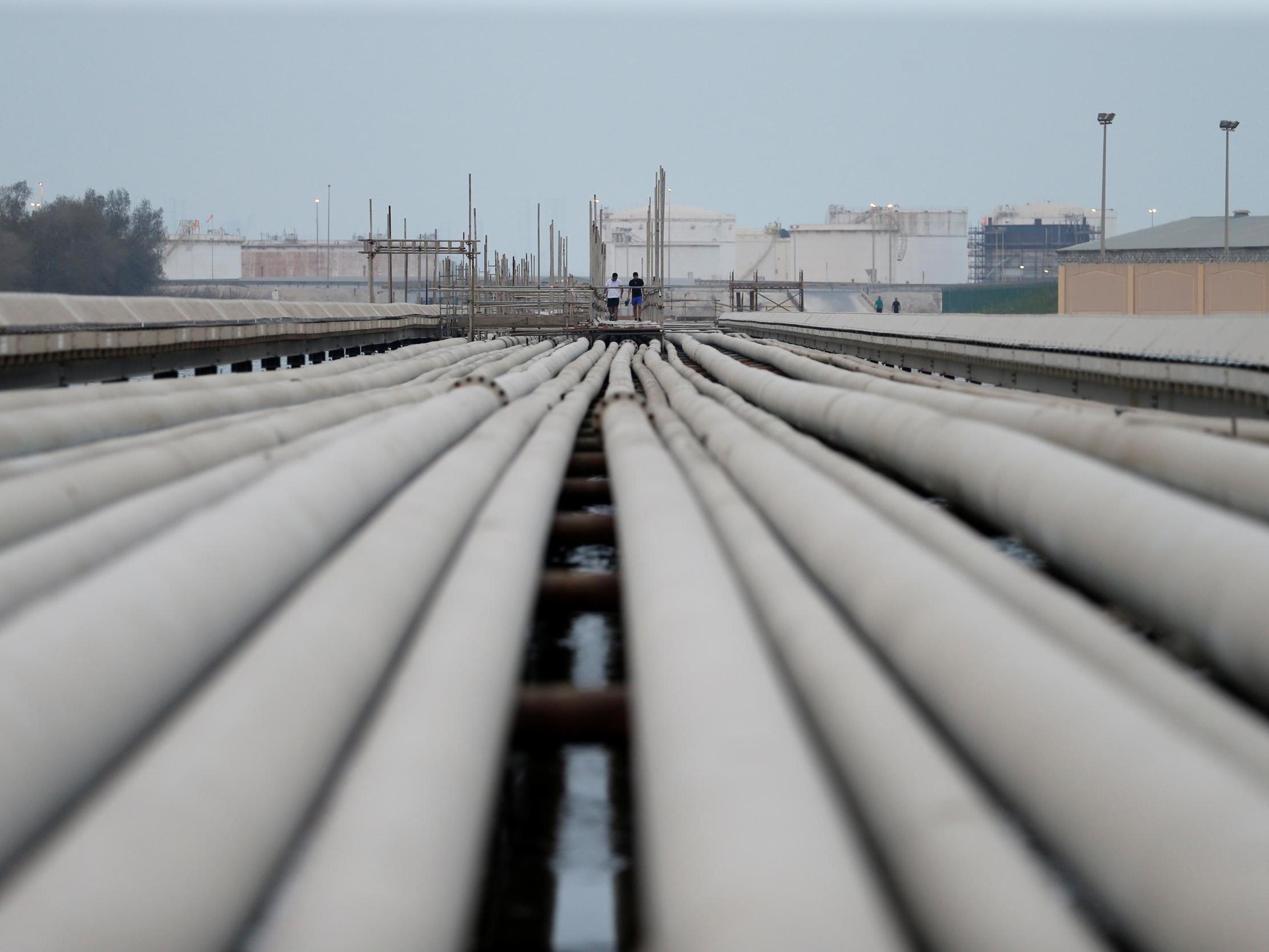‘Utter hypocrisy’: Government refuses to stop spending billions on fossil fuel projects across world
‘People expect their political leaders try to stop, not accelerate, the pace of climate breakdown,’ says MP

Your support helps us to tell the story
From reproductive rights to climate change to Big Tech, The Independent is on the ground when the story is developing. Whether it's investigating the financials of Elon Musk's pro-Trump PAC or producing our latest documentary, 'The A Word', which shines a light on the American women fighting for reproductive rights, we know how important it is to parse out the facts from the messaging.
At such a critical moment in US history, we need reporters on the ground. Your donation allows us to keep sending journalists to speak to both sides of the story.
The Independent is trusted by Americans across the entire political spectrum. And unlike many other quality news outlets, we choose not to lock Americans out of our reporting and analysis with paywalls. We believe quality journalism should be available to everyone, paid for by those who can afford it.
Your support makes all the difference.The government has been accused of “utter hypocrisy” after rejecting calls from MPs to stop spending billions on overseas fossil fuel projects while claiming to be a leader in the fight against global warming.
Parliament’s Environmental Audit Committee had warned that Britain is sabotaging its climate credentials by paying out “unacceptably high” oil and gas subsidies in developing nations.
But international trade secretary Liz Truss shunned the cross-party group’s recommendation that investment in fossil fuel projects abroad should end by 2021, saying the move would be “too abrupt”.
A report published by the cross-party group in June found UK Export Finance (UKEF) – a government body that underwrites loans and insurance to help British firms secure business abroad – had spent £2.6bn in the last five years supporting global energy exports. Of this, £2.5bn went on fossil fuel projects, with the vast majority in low- and middle-income countries.
The EAC said the funding was “the elephant in the room undermining the UK’s international climate and development targets”. It also warned the projects risked locking developing nations into fossil-fuel dependency “for decades to come”.
The committee called for UKEF to follow the lead of export credit agencies in other countries, such as Sweden, by capping lending to fossil fuel projects.
It urged the department to commit funding only to projects that align with the government’s target of net zero emissions by 2050.
Responding to the committee, the international trade secretary insisted Britain was “playing a leading role in the transition to a low carbon future” but there “remains a need for a mix of energy sources and technologies”.
In a letter published on Tuesday, Ms Truss said the government was “mindful that the transition to a low carbon economy, both in the UK and overseas, must also be equitable”.
She wrote: “ln developing countries, energy security is central to continued development and poverty alleviation. The UK’s oil and gas sector is a significant source of skilled jobs across different regions of the UK and continues to play an essential role in the UK’s energy security even as we transition to lower carbon and renewable energy sources.”
Labour MP Mary Creagh, who chairs the committee, said it was “unbelievable” the government had “rejected our call to end taxpayer money being poured into new high carbon projects”.
She added: “We called for the government to commit to only back British business export projects that support the UK’s climate goals. Their refusal to do so completely undermines the government’s commitment to get to net zero emissions by 2050.
“People expect their political leaders try to stop, not accelerate, the pace of climate breakdown.”
Environmental campaign group Global Witness said the government’s position was one of “utter hypocrisy”.
Senior climate campaigner Adam McGibbon added: “Just last week the prime minister was in New York, for the UN climate summit, pledging action whilst his government at home was committing to funding fossil fuel projects abroad.
“The UK is trying to portray itself as a global climate leader ahead of the UN climate summit in Glasgow next year, but this stands violently at odds with reality.”
Earlier this year, Ban Ki-moon, the former secretary general of the UN, called UKEF’s fossil fuel investments “deeply concerning” and said they were “hard to reconcile” with the government’s commitment to limiting global warming to 1.5C above pre-industrial levels.
“There is now a growing consensus that fossil fuels should not be funded in any way by export finance organisations,” he wrote.
In April, teenage climate activist Greta Thunberg told MPs the UK’s active support for new exploitation of fossil fuels was “beyond absurd” and “irresponsible behaviour”.
A report by the Committee on Climate Change in May warned UKEF was “not aligned with climate goals and often supports high-carbon investments”.
The following month, UKEF announced it had agreed to lend £406m to companies working on the expansion of a state-run Bahraini oil refinery.
It is currently also considering whether to grant funding for gas drilling platforms off the coast of Mozambique, a project advisers have warned could have “significant adverse” environmental impacts.
Companies to have received funding from UKEF in recent years include Turkish construction firm Enka, which was handed £578m in subsidies for its work on two gas-fired power plants in Iraq.
The company’s subsidiary, registered in the UK in 2016 without an office, staff or operations in the country, was granted the money on the condition that at least 20 per cent of contracts on the project went to British businesses.
Join our commenting forum
Join thought-provoking conversations, follow other Independent readers and see their replies
Comments